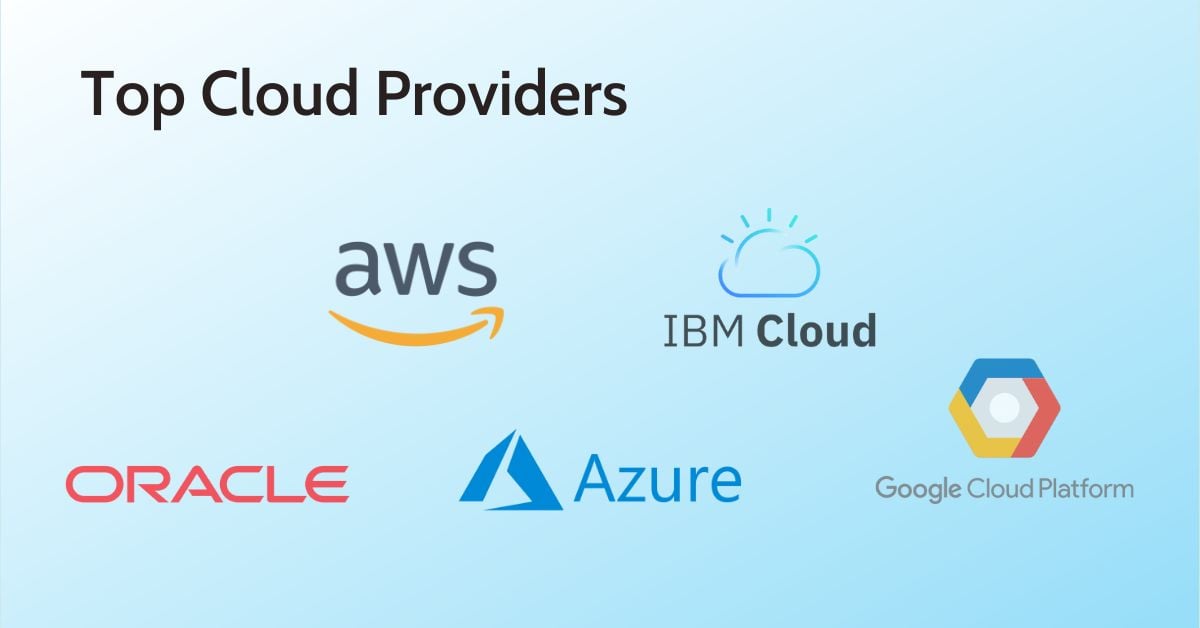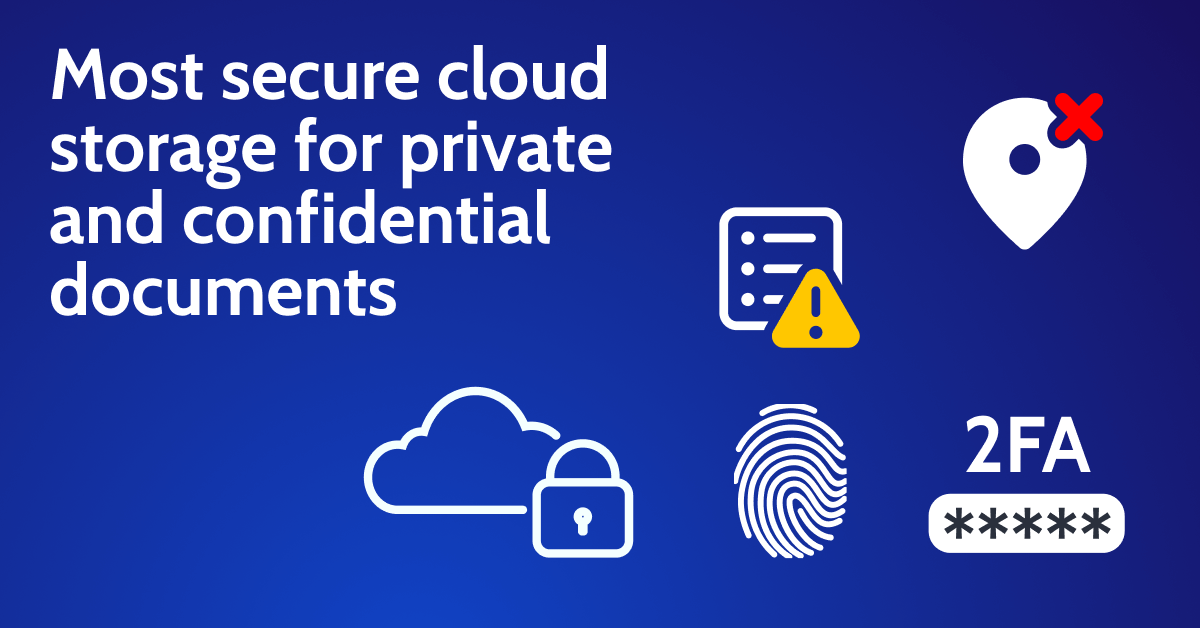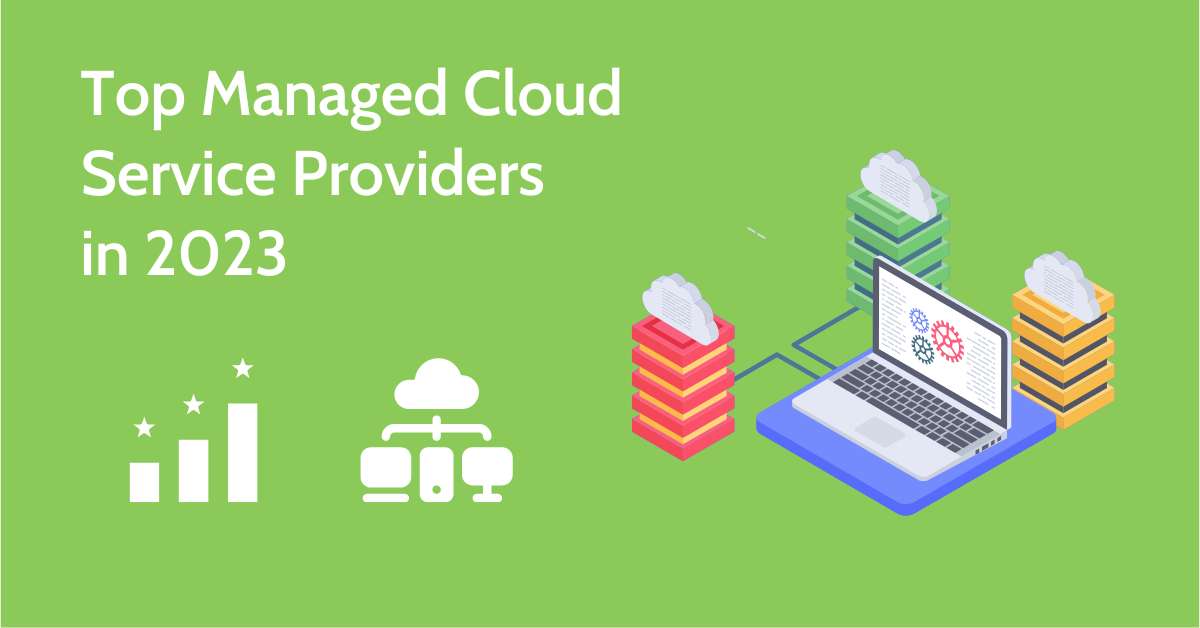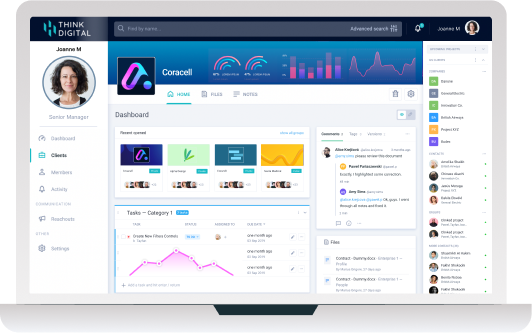Cloud computing emerged and spread through the IT industry like wildfire due to the ease-of-access it has given users to a multitude of simple tasks that they can carry out over the internet, and tons of IT resources. In this article, we are going to look at the top cloud providers globally.
IT infrastructures have become more convenient and agile as a result of the growth of cloud computing. Critical essentials like equipment, human resources, data, policies, methods, and external contacts are working together seamlessly for the greater good, which in this case is the business’ efficiency.
Top 5 Cloud Providers in 2023
Amazon Web Service (AWS)
Amazon is the world leader at the moment and will be for the foreseeable future, as there is no one really close to them. As with many companies that are world leaders in their respective industries, Amazon Inc. was the first organization to take advantage of this opportunity with their Amazon Web Service (AWS) product. This has resulted in them being the first choice for both big and small companies when it comes to the time that they want to convert from their data centers to cloud computing.
Features
● Fast deployments
● Easily managed to remove or add capacity
● Has Hybrid Capabilities and can be per hour
● Centralized management and billing
● Easy and fast sign-up
● Users have access to basically limitless capacity. However, the flexibility and scale it offers can also lead to unexpected expenses if not monitored properly. Proper understanding and utilization of cost optimization tools and strategies is required to manage and optimize AWS costs according to your business needs and budget constraints.
Google Cloud Platform
Google Cloud Platform (GCP) is a product offered by google that includes a number of services that operate over the cloud. These services include storage, application development, and computing that all run on Google hardware. GCP can also be accessed by IT professionals, cloud administrators, and software developers over a network connection or public internet.
Google periodically changes their suite of services, and it is always evolving based on the demand of their users or pressure from competition.
Features
● Solves problems with data analytics and AI
● Businesses or individuals can scale with flexible, open technology
● If offers Google Storage which can hold large amounts of data
● Provides a full suite of cloud based services that can transform your business
Microsoft Azure
Microsoft Azure was launched by Microsoft in February 2010. Microsoft is a household name and has been at the center of the technology world for years. Even though it entered the cloud computing market at a relatively late stage, it has a very deep involvement with all of the cloud layers and this is what has pushed it to the top of the industry.
The main selling points of Microsoft Azure are that it is a private cloud provider that provides service management, hosting solutions, and data storage.
Features
● Consistent across the cloud with familiar resources and tools
● Gives the user flexibility, cost-effectiveness, and scalability
● Is THE most effective solution for a user’s data needs
● IT resources can be scaled up or down depending on the users needs
IBM Cloud
IBM Cloud is a product from IBM that includes a whole host of cloud computing services that run on either infrastructure as a service (IaaS) or platform as a service (PaaS). This product came from IBM when they decided to merge their virtualization technologies and their mainframe computing. IBM states that 47 out of the Fortune 50 companies use IBM as their private cloud provider.
Features
● IBM cloud provides the option between platform as a service (PaaS), software as a service (SaaS), or infrastructure as a service (IaaS).
● Gives its users high performance cloud services and communication
● Can be used to build pioneering, which gives business value
Oracle
Similar to the above options, Oracle is a private cloud computing service that is offered by Oracle Corporation. It includes a network, storage, services, applications, and servers all through its global network of data centers. These various services can be ordered on-demand over the internet. These services are used to deploy, build, extend, and integrate applications over the cloud.
Features
● Gives users many options for how and where they make their journey to the cloud
● Next-gen cloud data management
● Has good security against sophisticated cyber attacks and sanctioned apps
● Includes chatbots, artificial intelligence, machine learning and many other modern technologies
So what do you think of these top cloud providers in 2022? Will you or your business be taking advantage of one of these options in the coming years? Clinked would love to hear your thoughts in the comments below!









Let Us Know What You Thought about this Post.
Put your Comment Below.